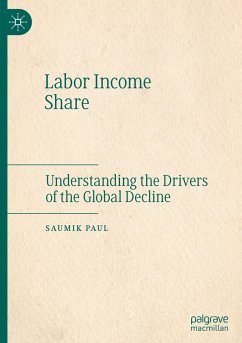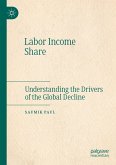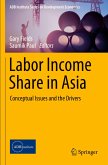This book is about labor income share, which measures the share of national income paid in wages. The global share of income going towards labor is declining, which suggests a more unequal distribution of income. This has sparked debates about fair distribution of personal incomes among academics and policymakers alike. This book joins the discussion by bringing together recent developments in theoretical and empirical research on labor income share and novel insights on the measurement of the labor income share. The aim of this book is to help design policies to reduce inequality and provide useful knowledge to academics, policymakers from government agencies, policy aides in research institutions and think tanks, and broader audiences from public and private organizations.
Bitte wählen Sie Ihr Anliegen aus.
Rechnungen
Retourenschein anfordern
Bestellstatus
Storno








